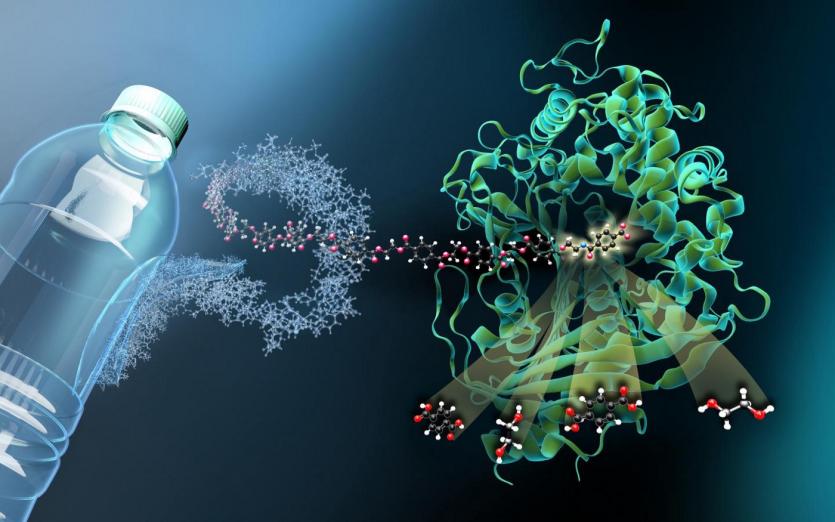Photo:Medium
Scientists Discover Bacterium that Devours Plastic Waste
By Patryk Krych | The World Daily MARCH 27th 2020
A curious discovery has recently been made by scientists – a bacterium that not only actively feasts on typically toxic plastics, but is also revealed as the first of its kind to target and devour polyurethane.
The bacteria was identified by scientists from the Helmholtz Centre for Environmental Research-UFZ, in Germany, who believe in its capabilities the break down the problematic plastic material – polyurethane, which has proven to be tough to get rid of. It is a plastic commonly used in furniture, fridges and many other everyday products.
Whether this bacterium could be the answer to solving the world’s plastic waste problem is still up for debate, as the scientists have only made the discovery recently and have yet to incorporate the bacterium into any sort of potential solution. Polyurethane accounts for at least 3.5 million tonnes of plastic, produced each year in Europe. The difficulty in recycling the product comes in the fact that melting it with heat is hazardous, as it releases toxic chemicals, such as isocyanates, hydrocyanic acid, and dioxins.
Since the 1950s, more than 8 billion tonnes of plastic have been mass produced and left to litter the Earth’s surface, the majority finding its way into the world’s oceans, disrupting wildlife and polluting habitats. Of all these plastics, polyurethane is thought to be the most dangerous, although it’s not the only type that’s toxic.
The substance can be particularly hazardous when it finds itself buried under landfills, where its contaminants can cause lots of harm to the environmental surroundings. Polyurethane is, in this manner, a highly pollutant substance.
The majority of bacteria that tried to break down the plastic would end up dying due to the chemical toxicity. The newly discovered bacterium, however, seems to be able to survive it. “These findings represent an important step in being able to reuse hard-to-recycle polyurethane products,” said Hermann Heipieper, at the Helmholtz Centre, one of the members of the research team.
Dr Heipieper went on to say that use of this bacterium in any constructive way to get rid of dangerous plastics could take up to about 10 years of research and development. Until then, humans should go about lowering plastic production in general, and to try and cut the amount of plastics polluting the environment.
“The breakdown of certain polyurethanes can release toxic additives, which need to be handled carefully. This research group has discovered a strain that can tackle some of these chemicals,” he said. “While there is still much work to be done, this is exciting and necessary research that demonstrates the power of looking to nature to find valuable biocatalysts. Understanding and harnessing such natural processes will open the door for innovative recycling solutions.”
The team worked to isolate the bacterium, labelled ‘Pseudomonas sp. TDA1’ from a site rich in brittle plastic waste. After some study, they found that it belongs to a group of extremophilic bacteria, which happen to be known for their very high tolerance to toxic organic compounds, such as those that can be released from polyurethane.
The team also identified the degradation pathways and specific factors that can assist the microbe in metabolising certain chemical compounds in plastic, and is capable of essentially using these compounds to sustain itself.
“The bacteria can use these compounds as a sole source of carbon, nitrogen and energy,” said Dr Heipieper. “This finding represents an important step in being able to reuse hard-to-recycle [polyurethane] products.”
By Patryk Krych | © The World Daily 2020






